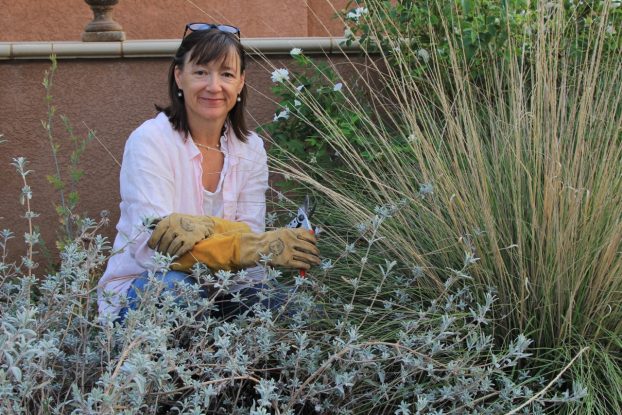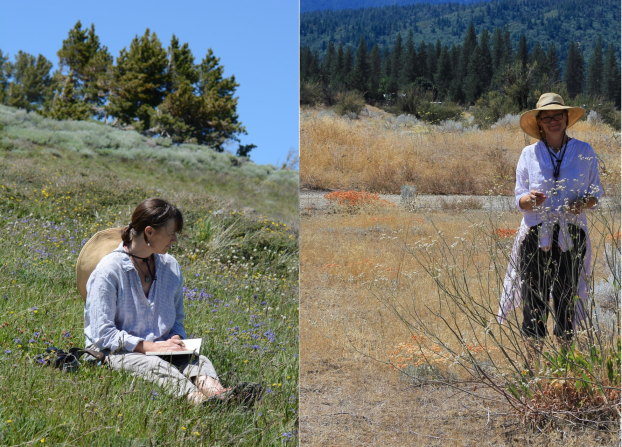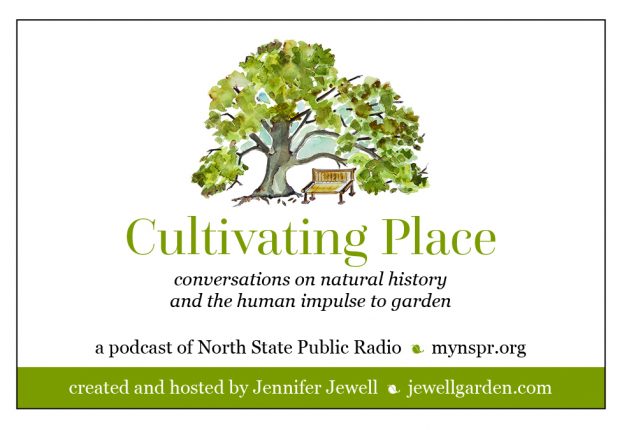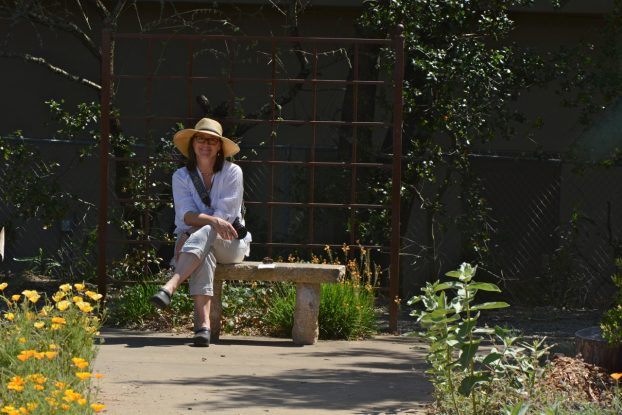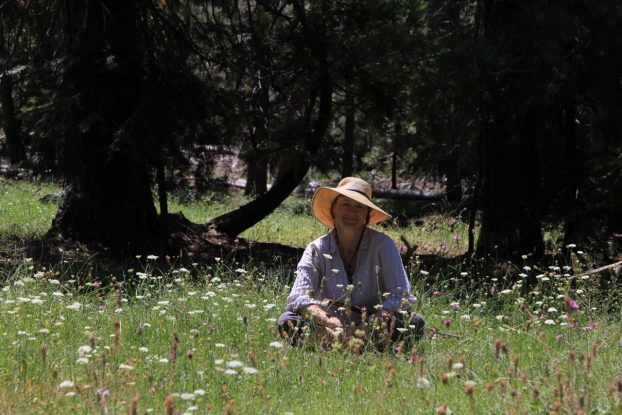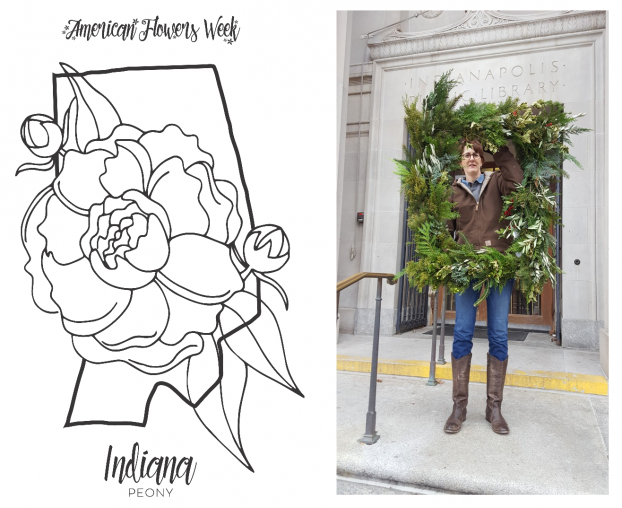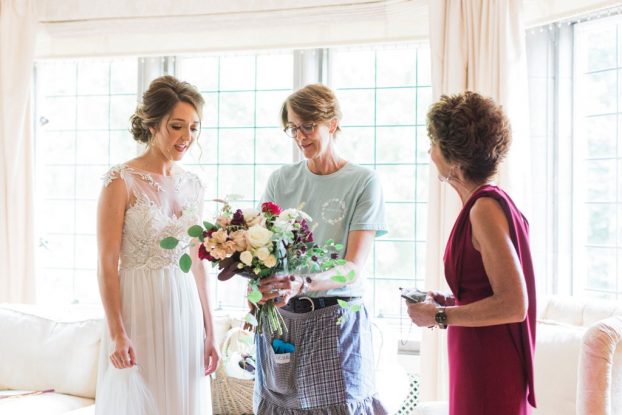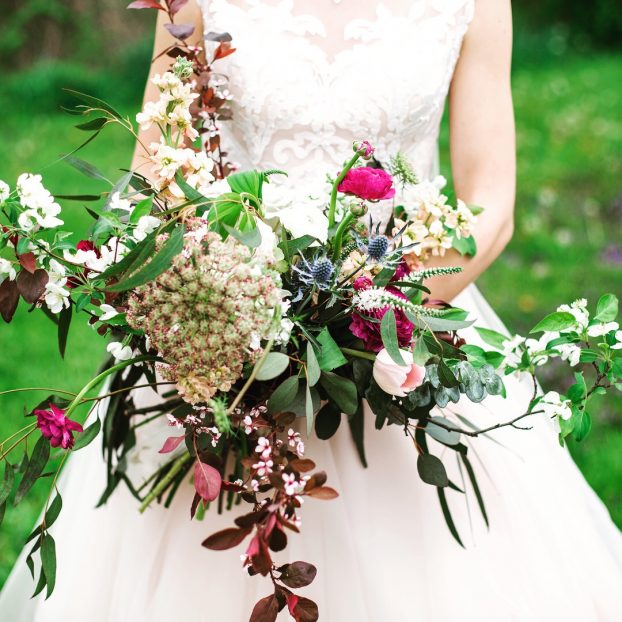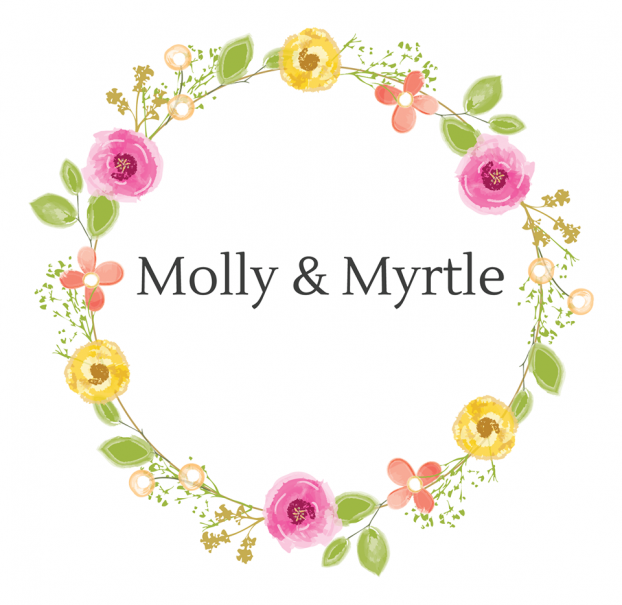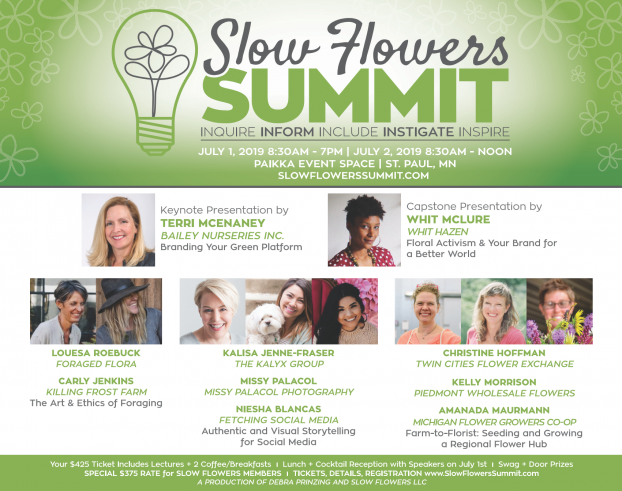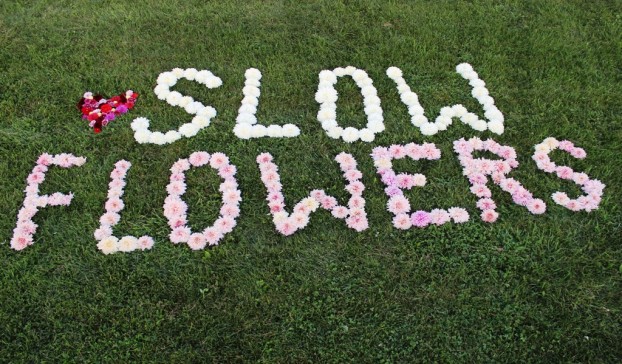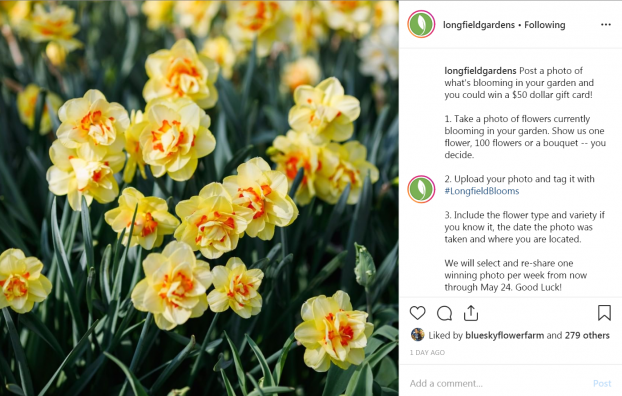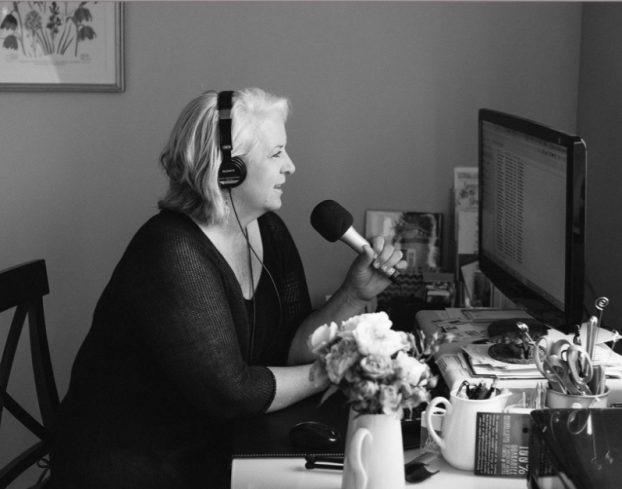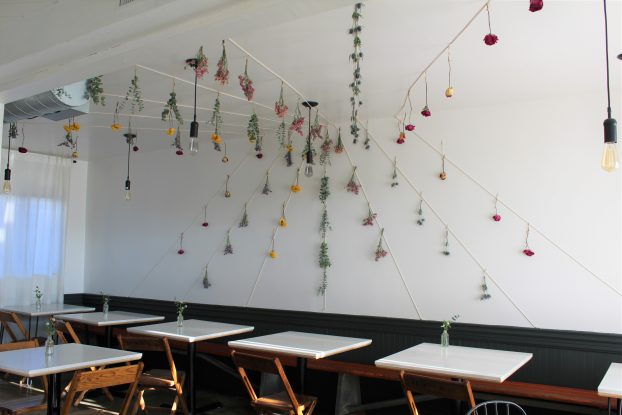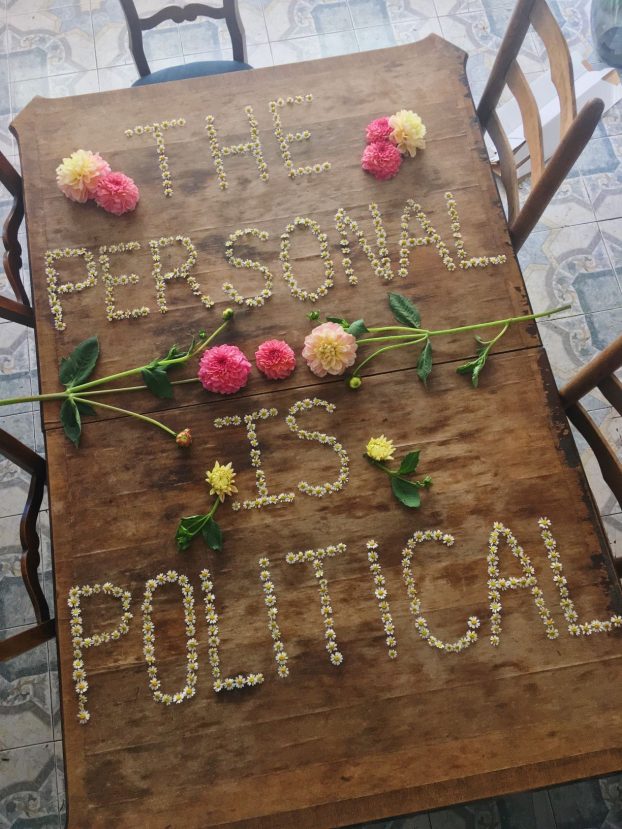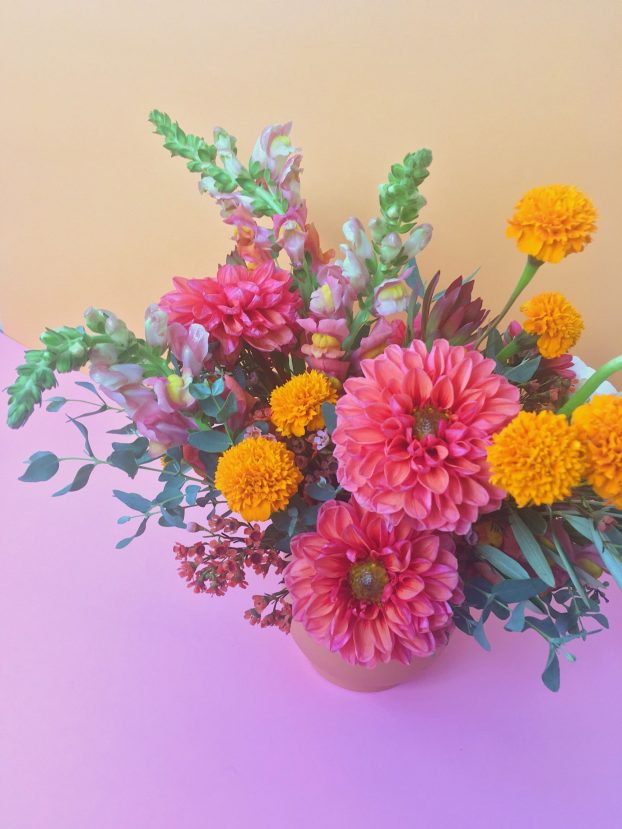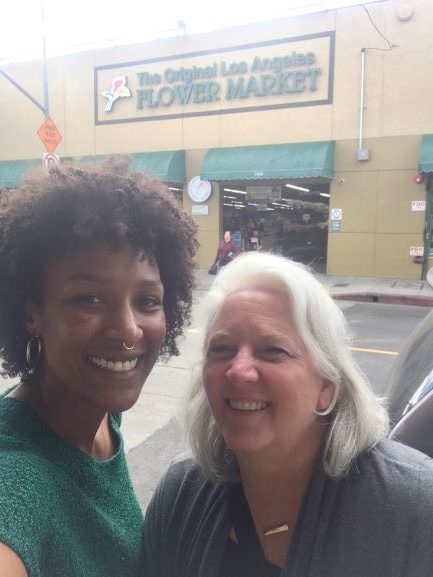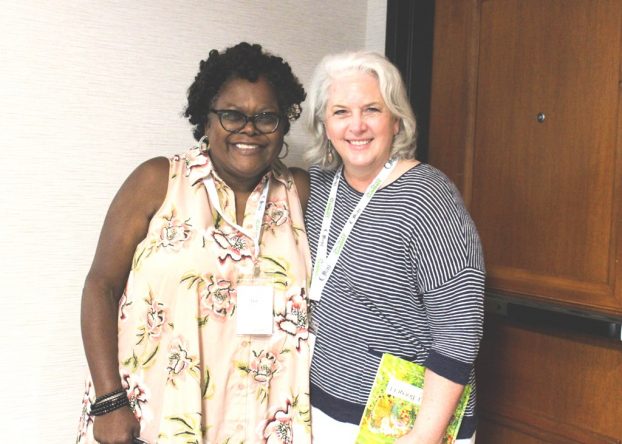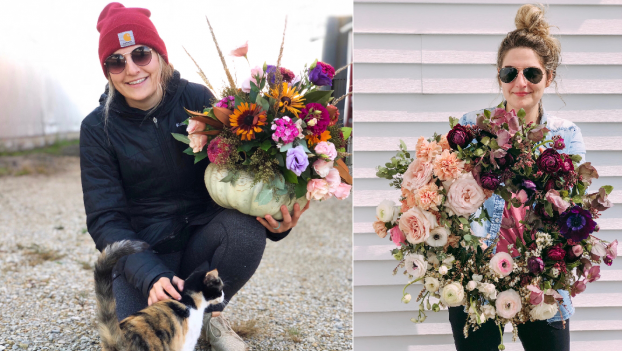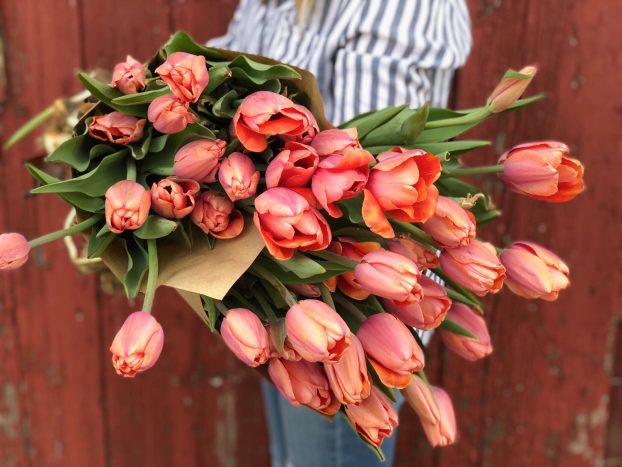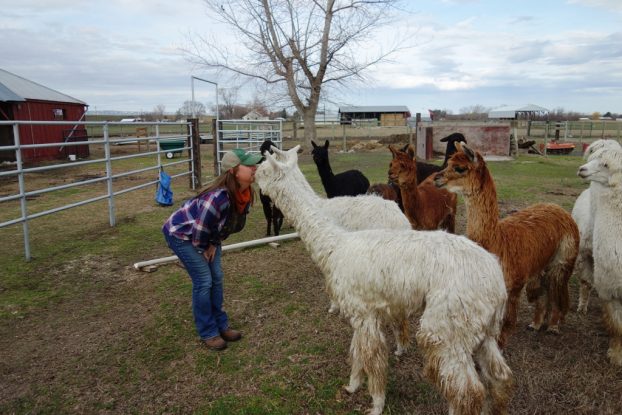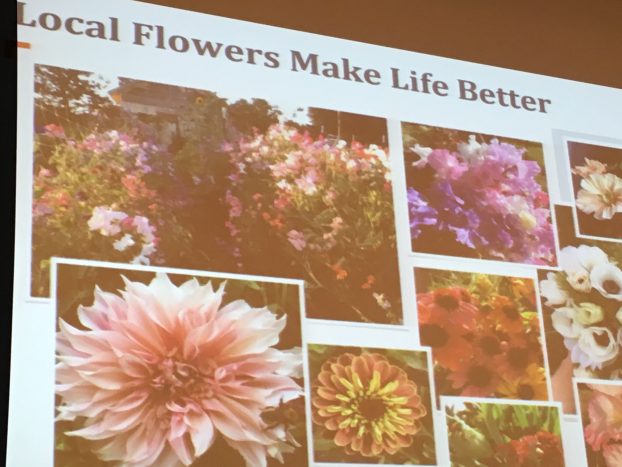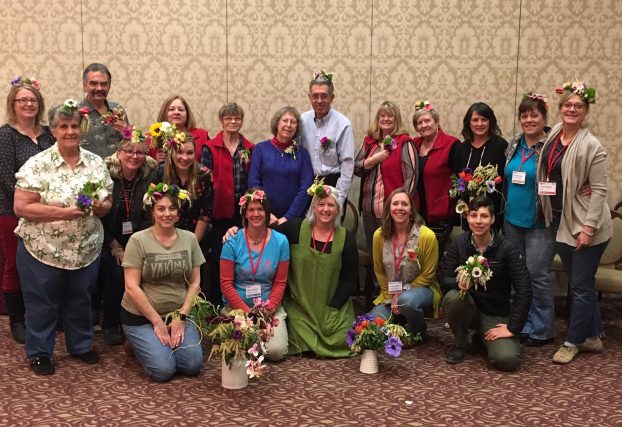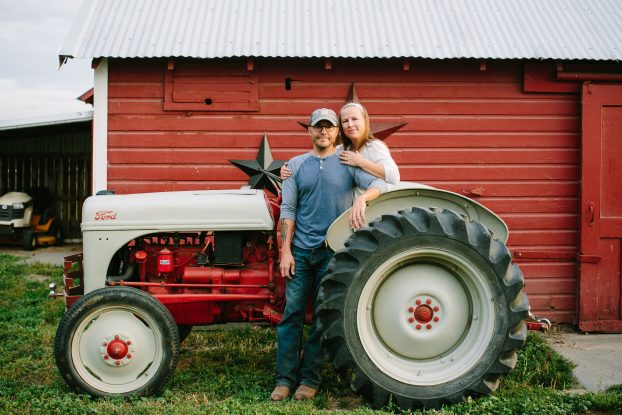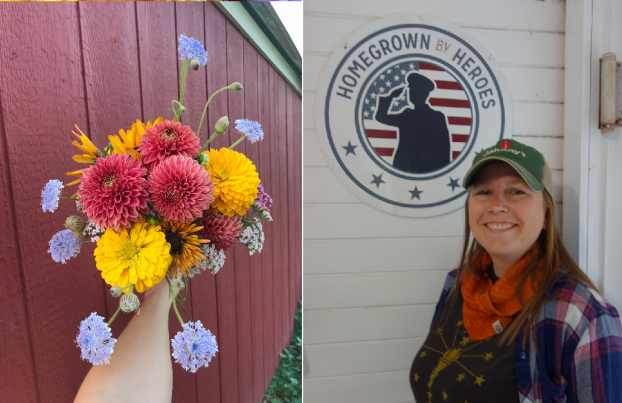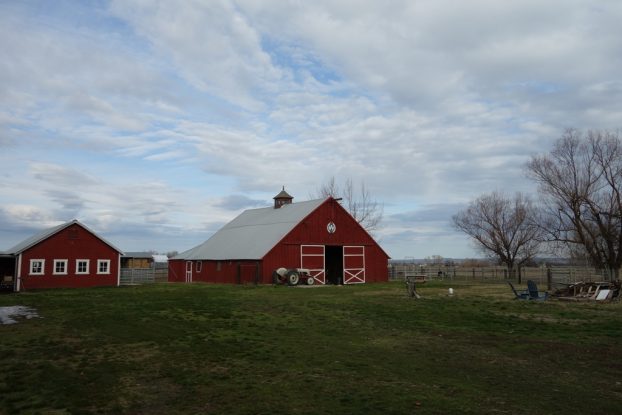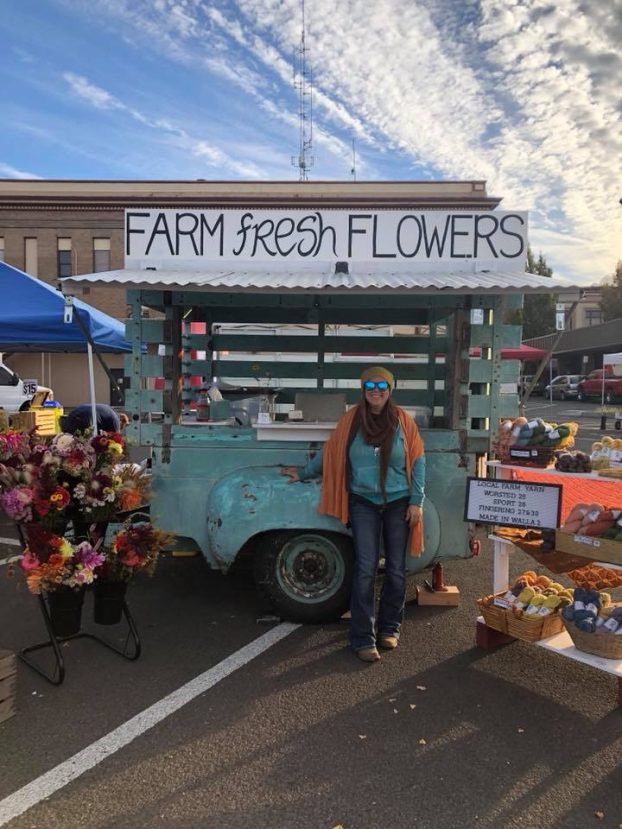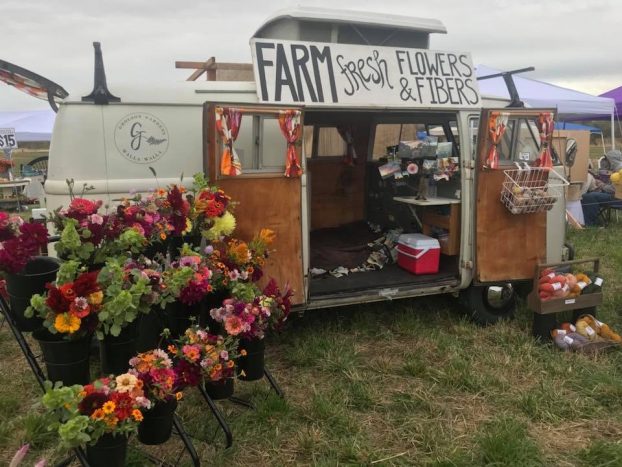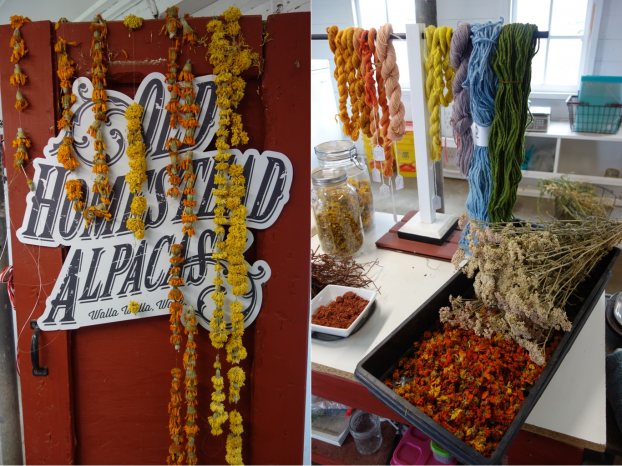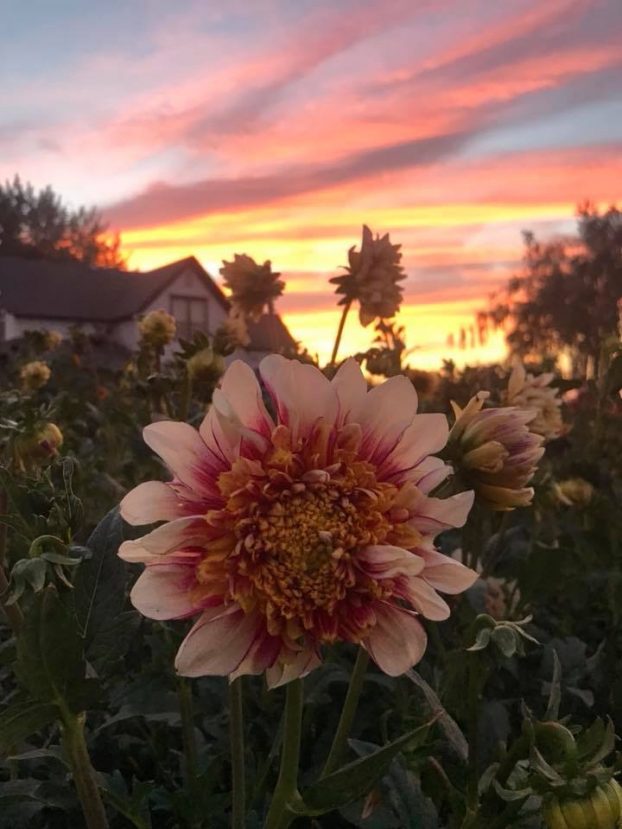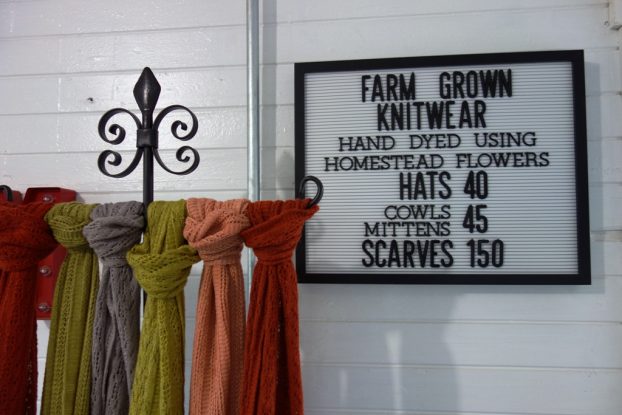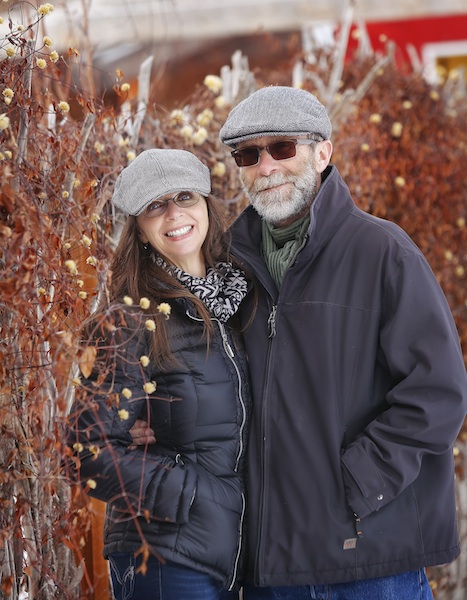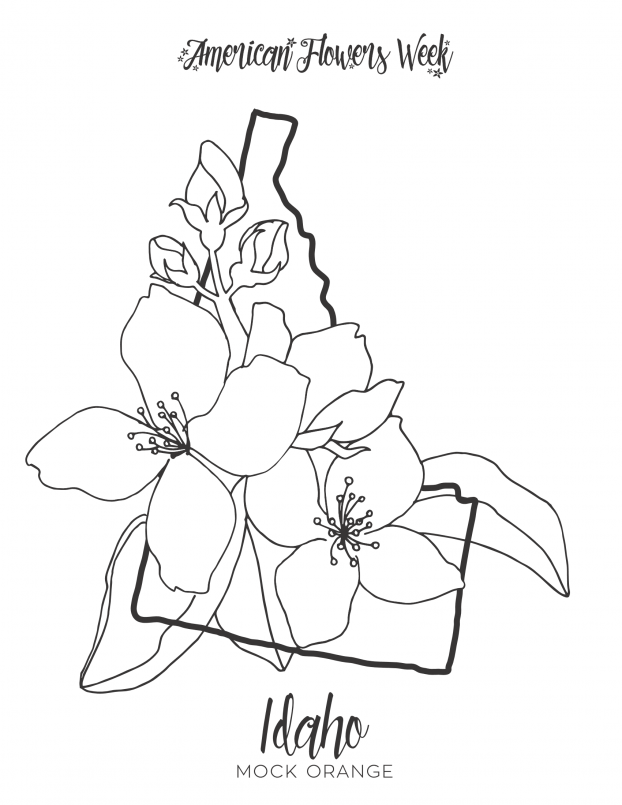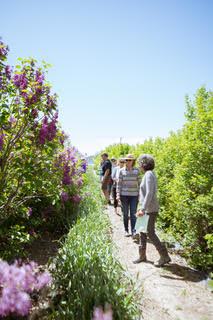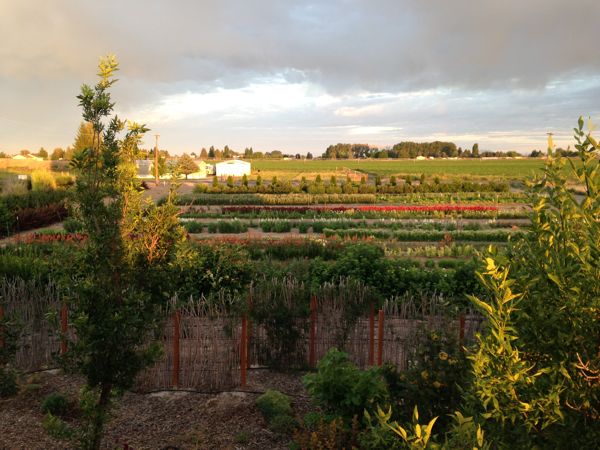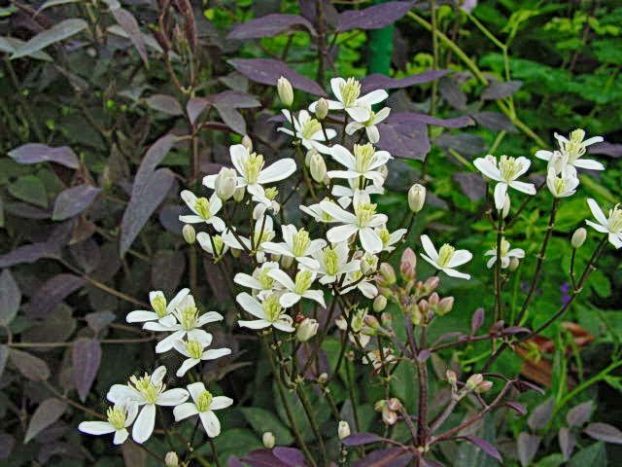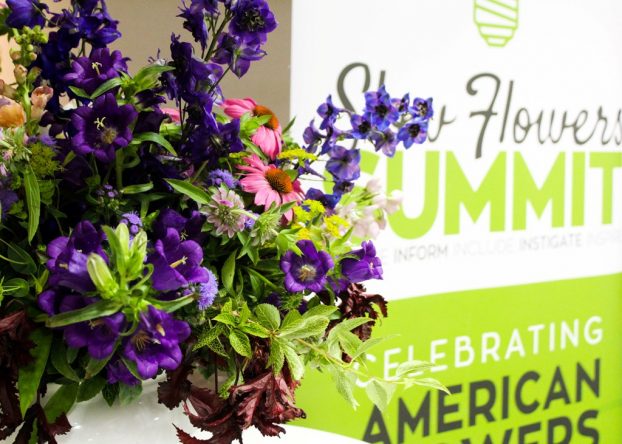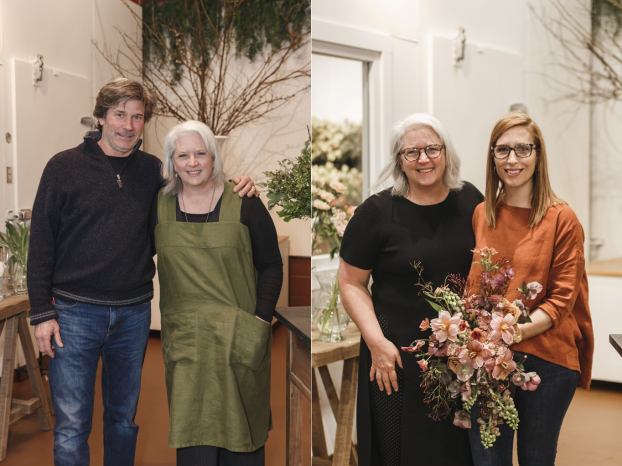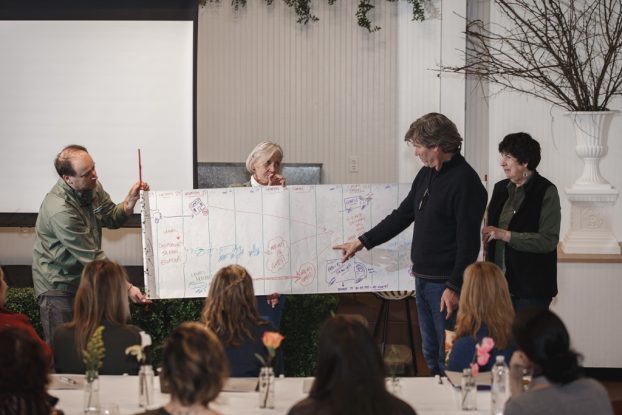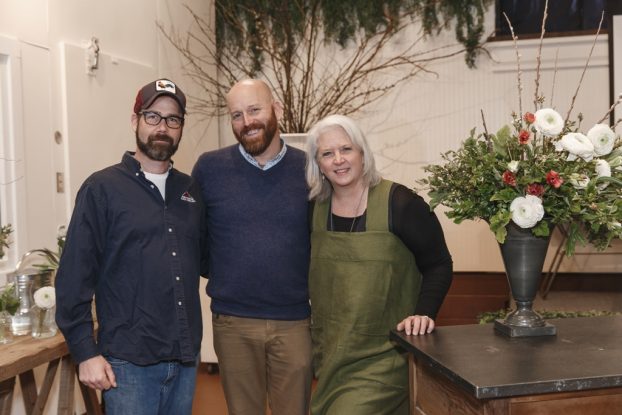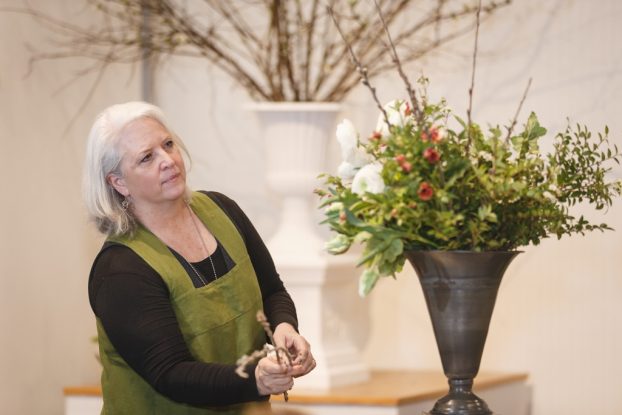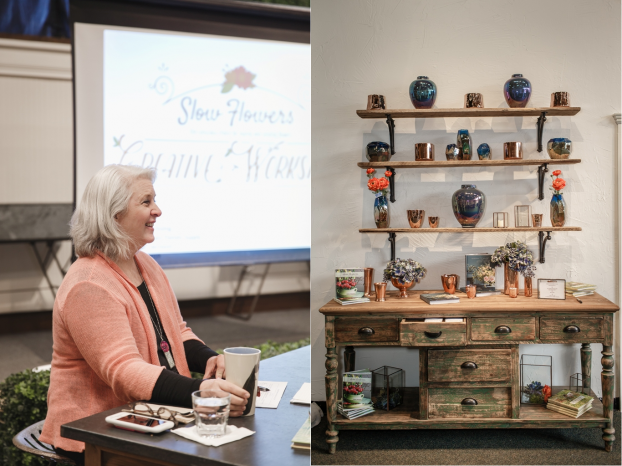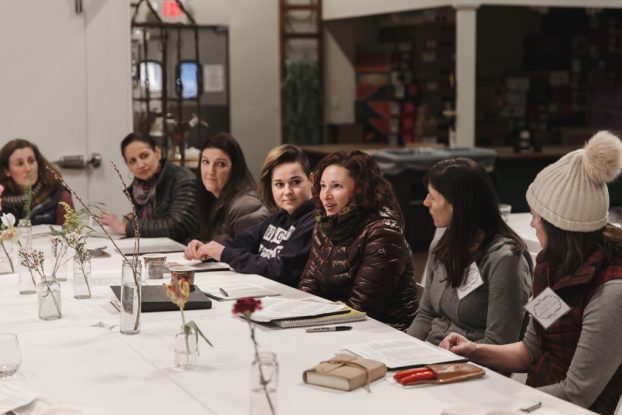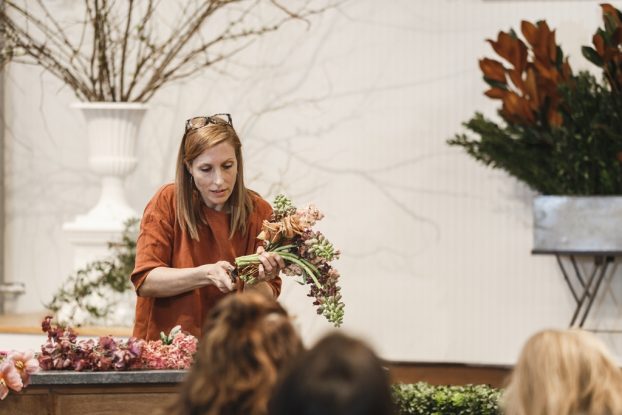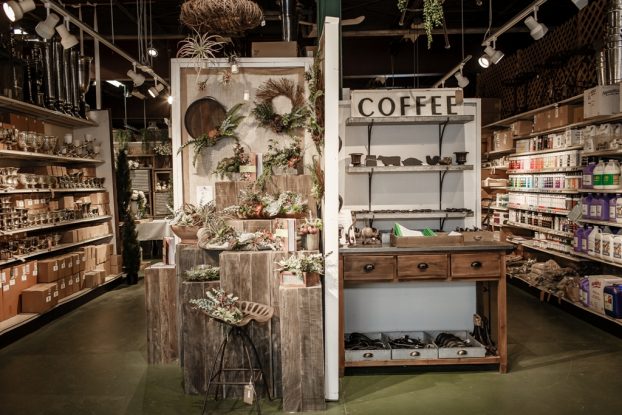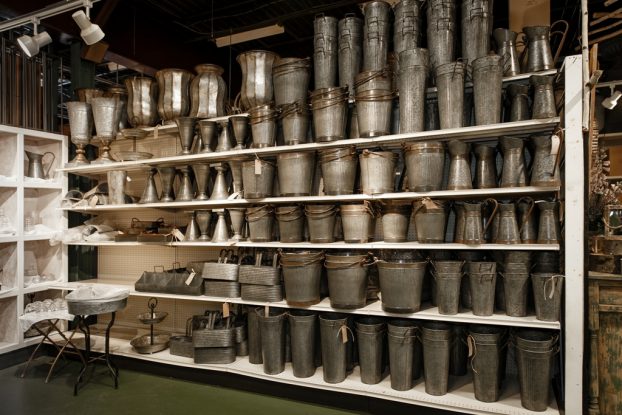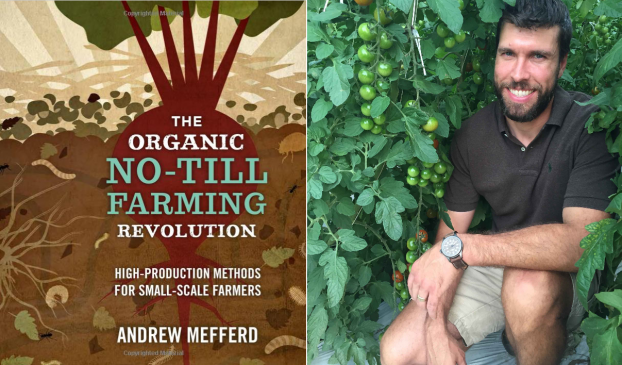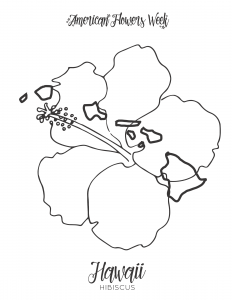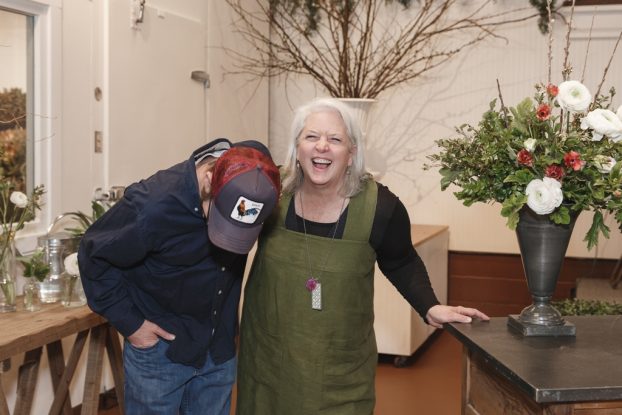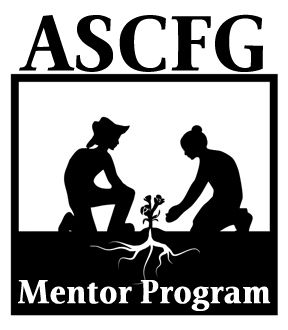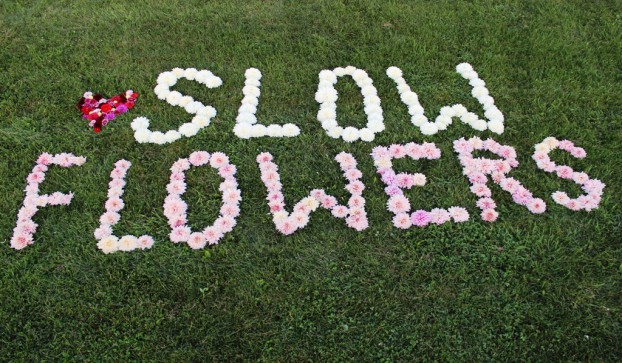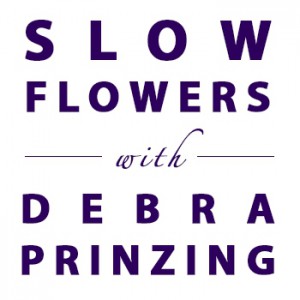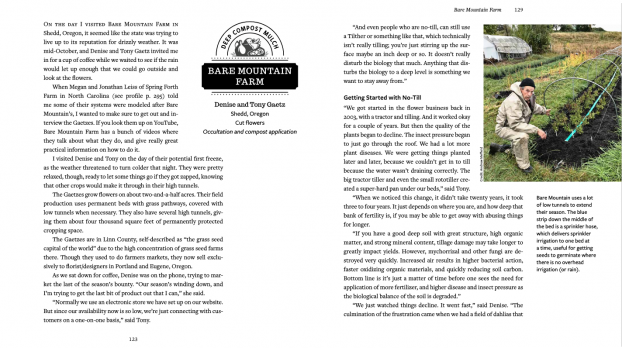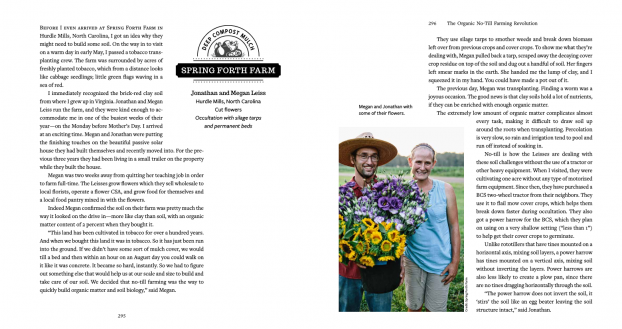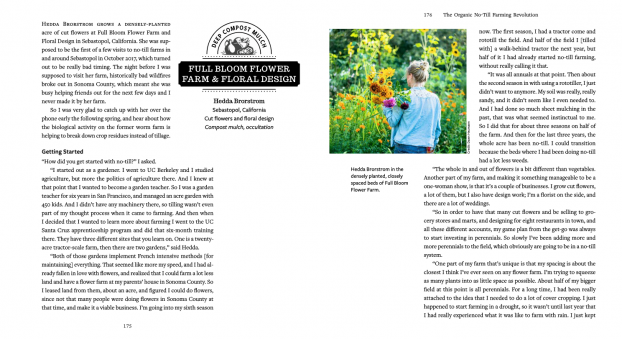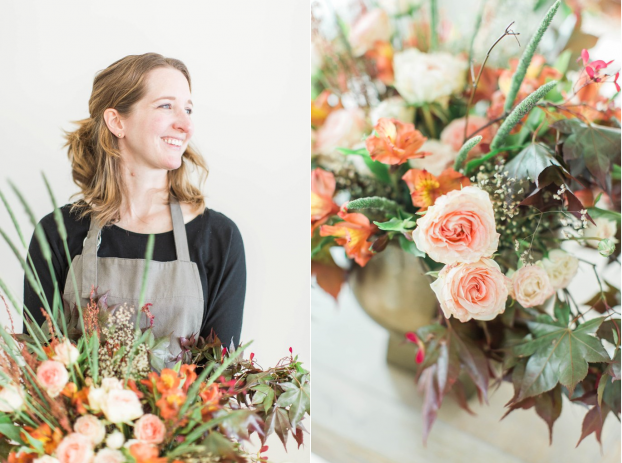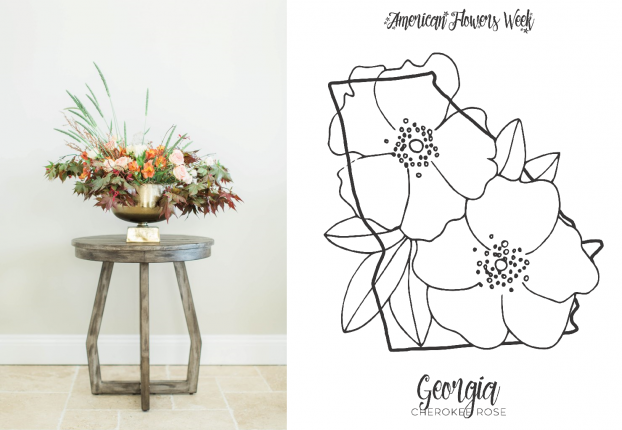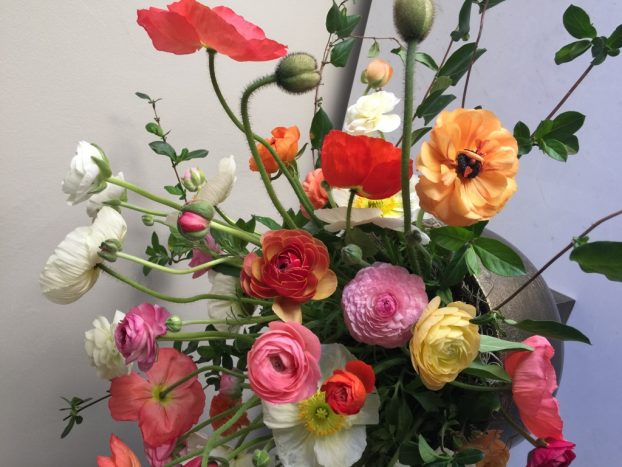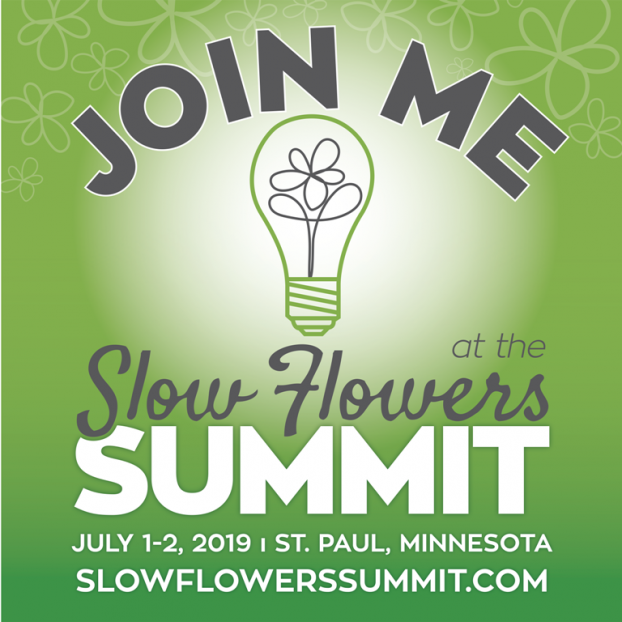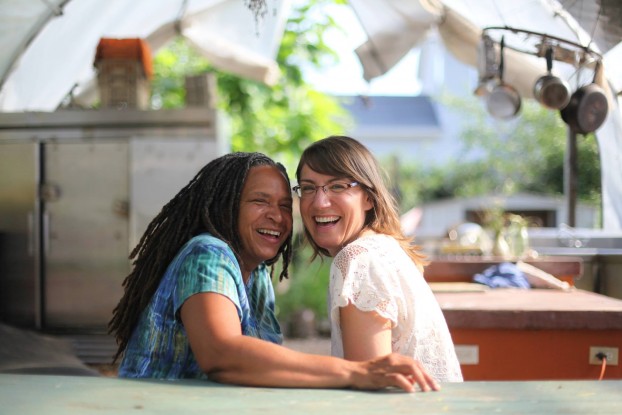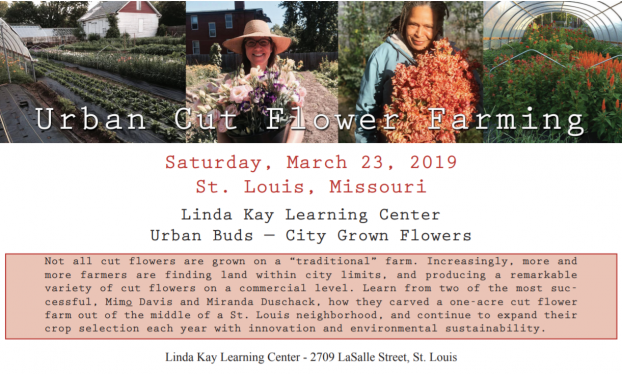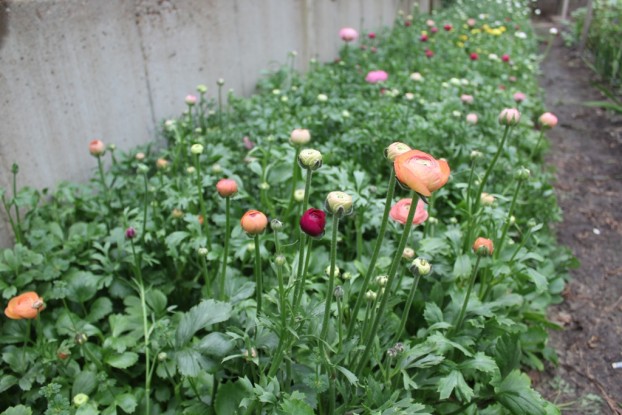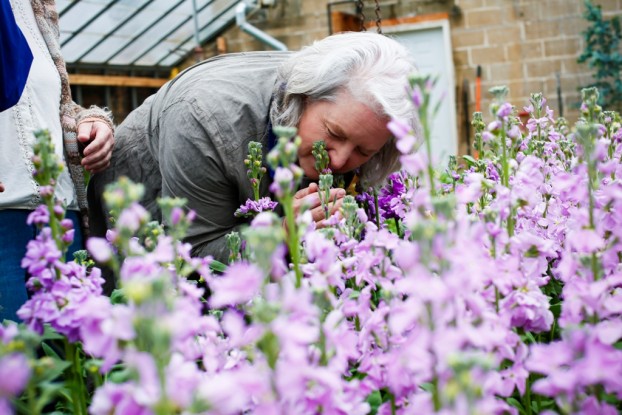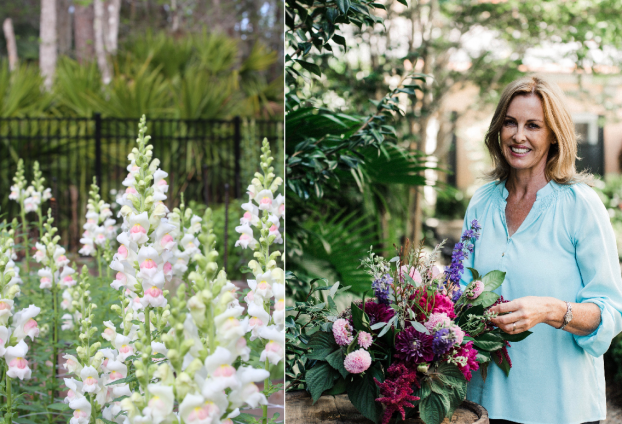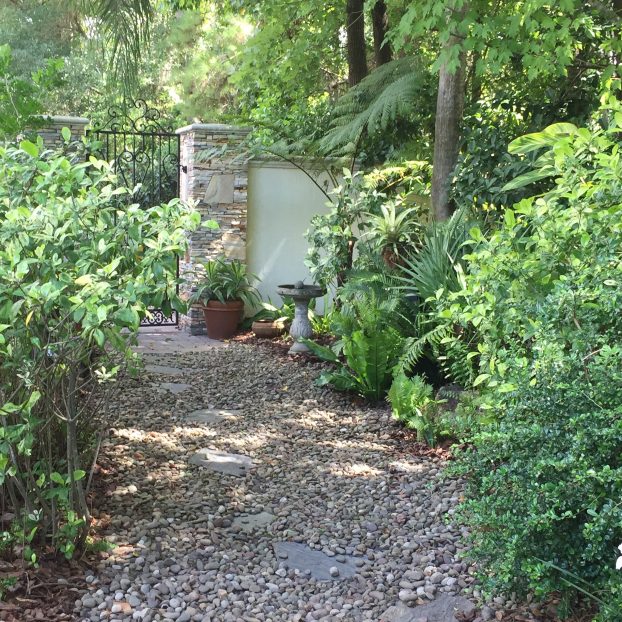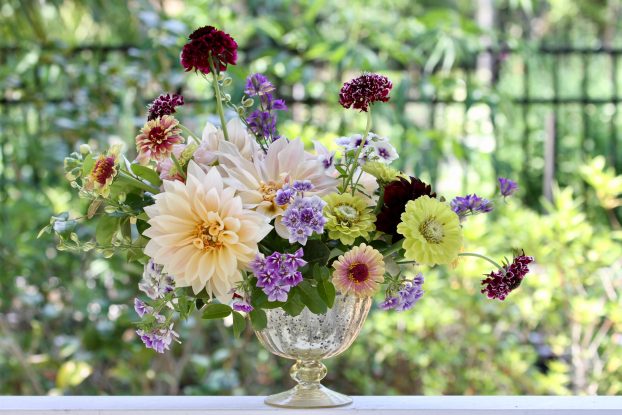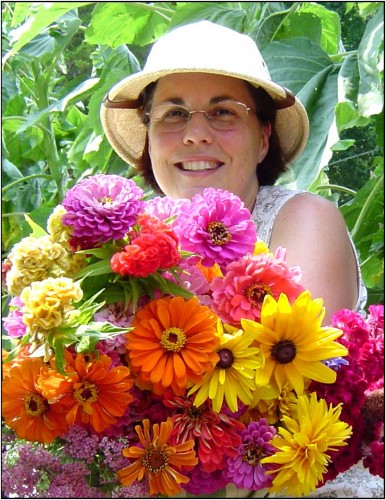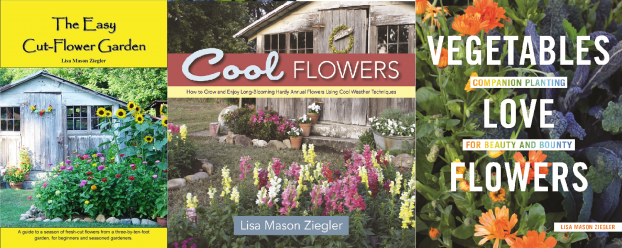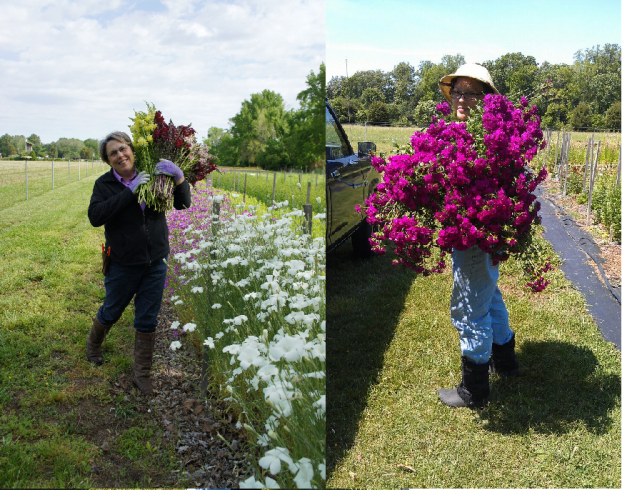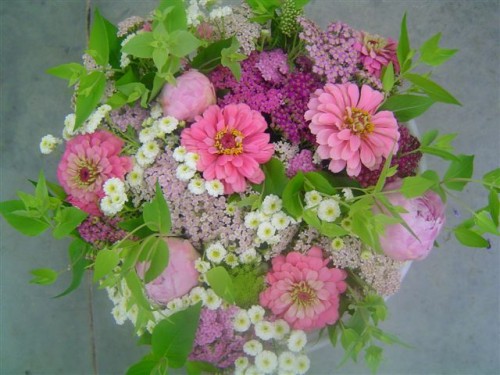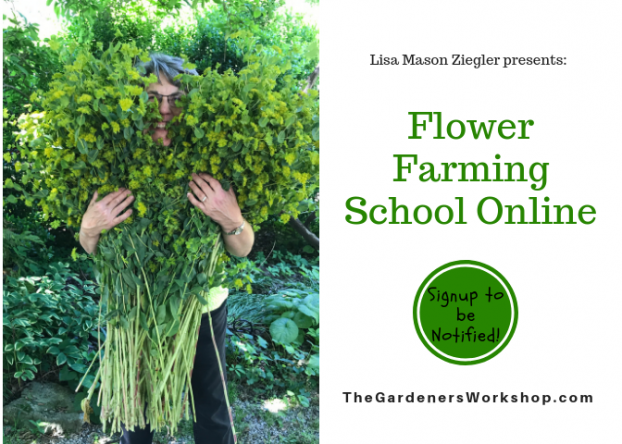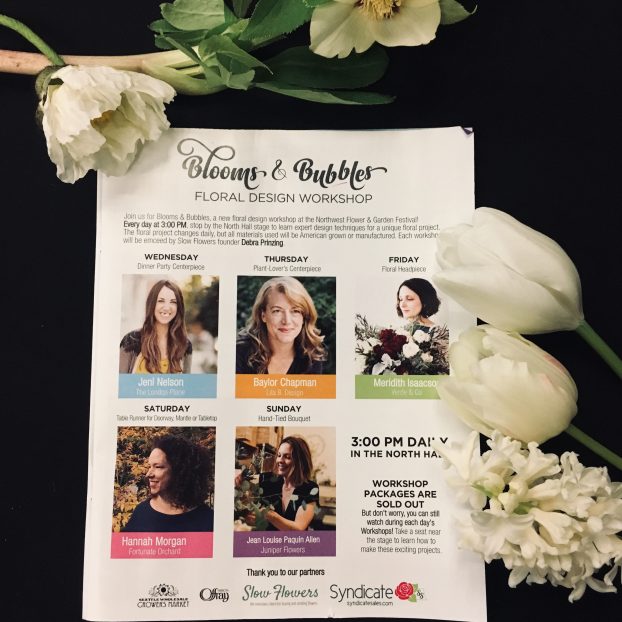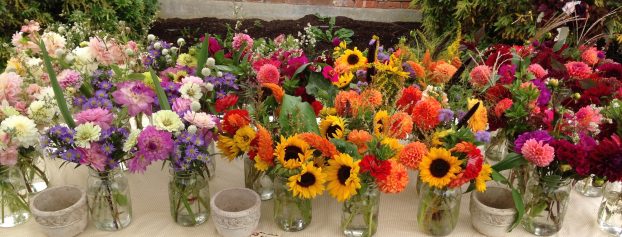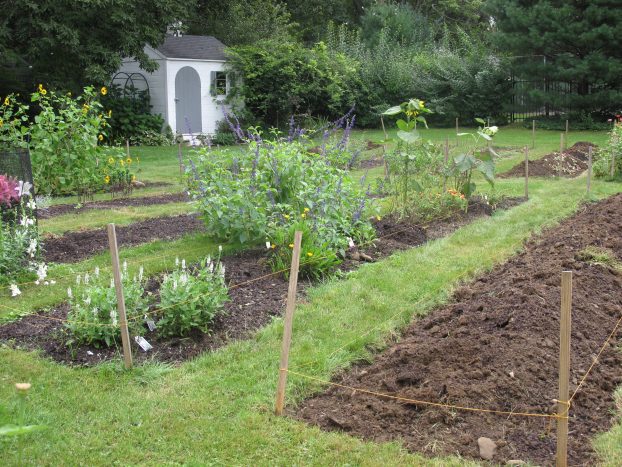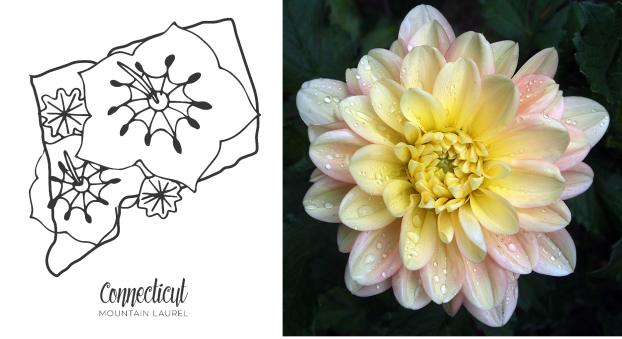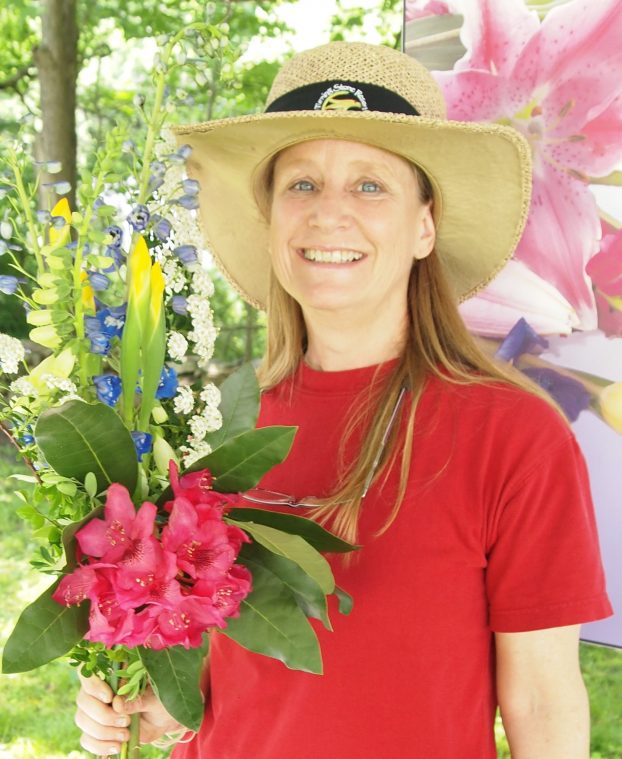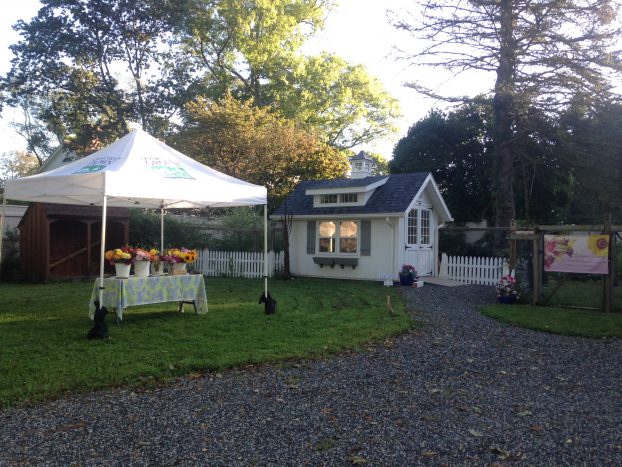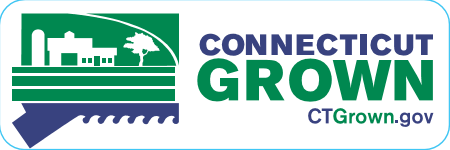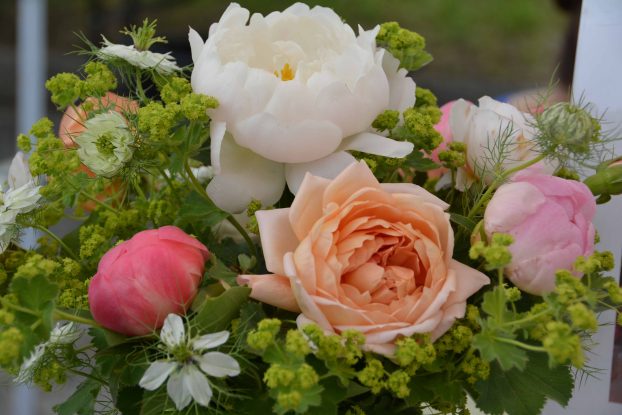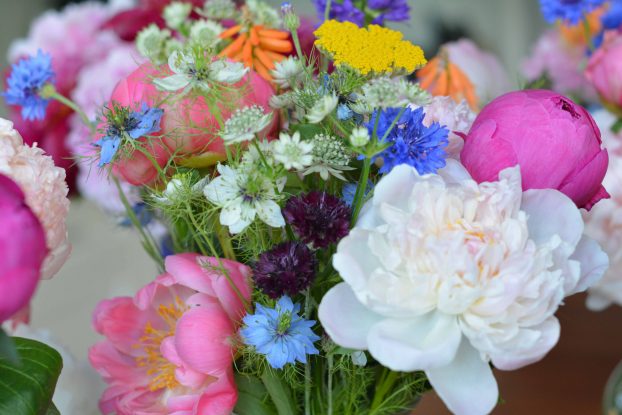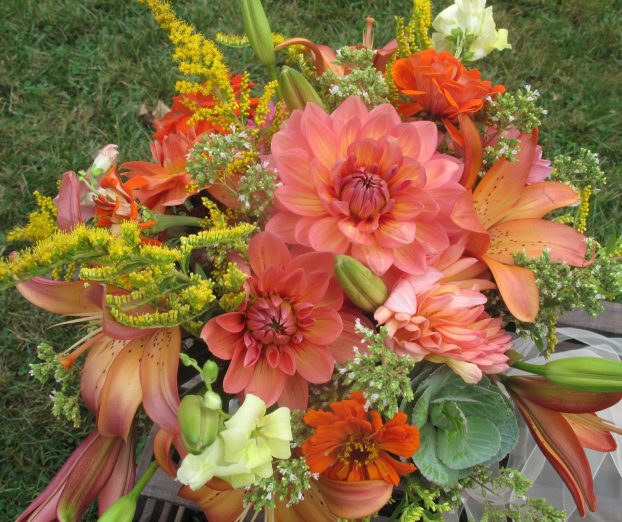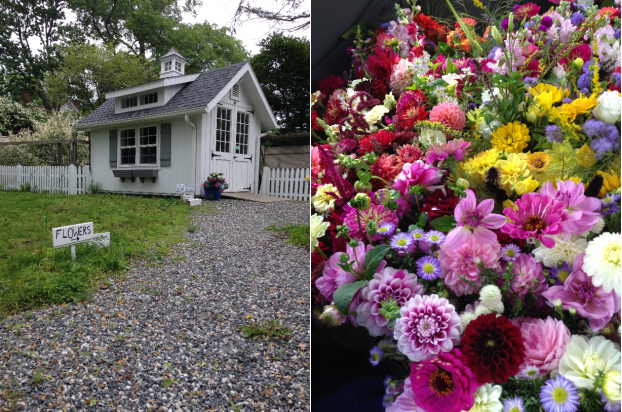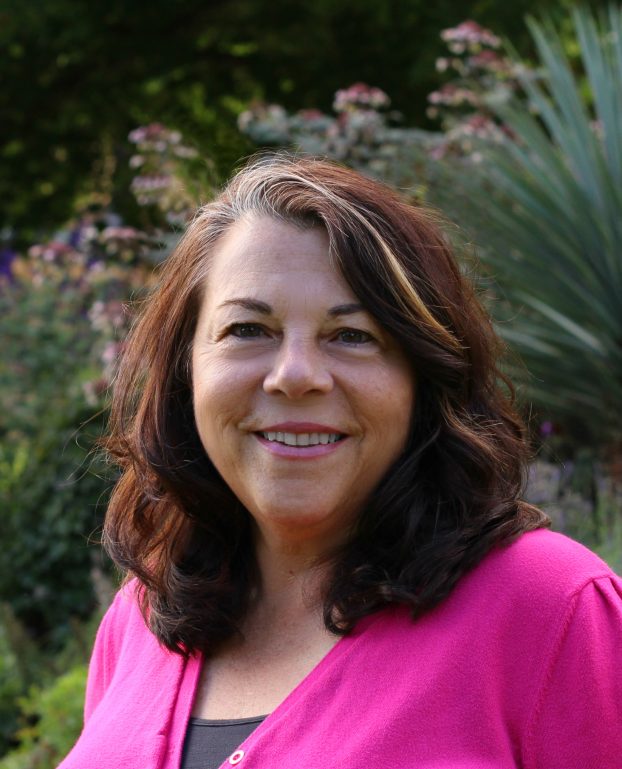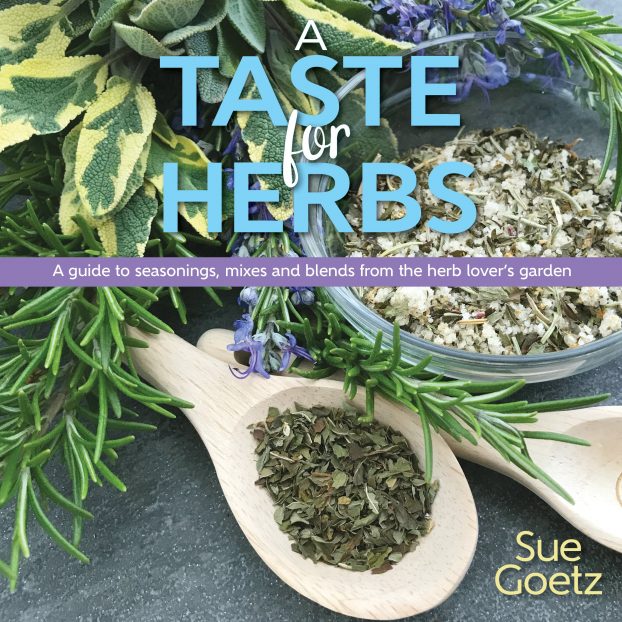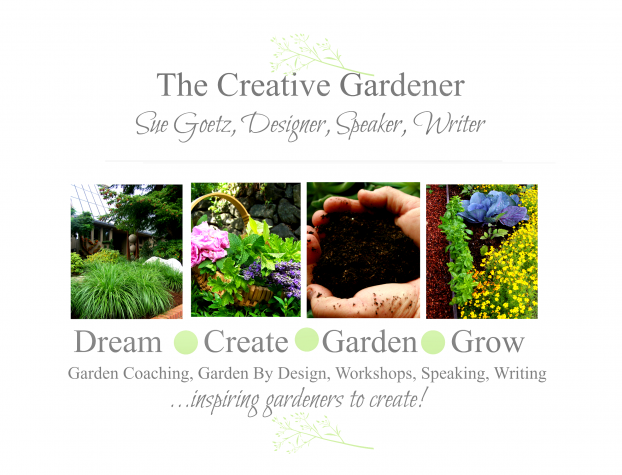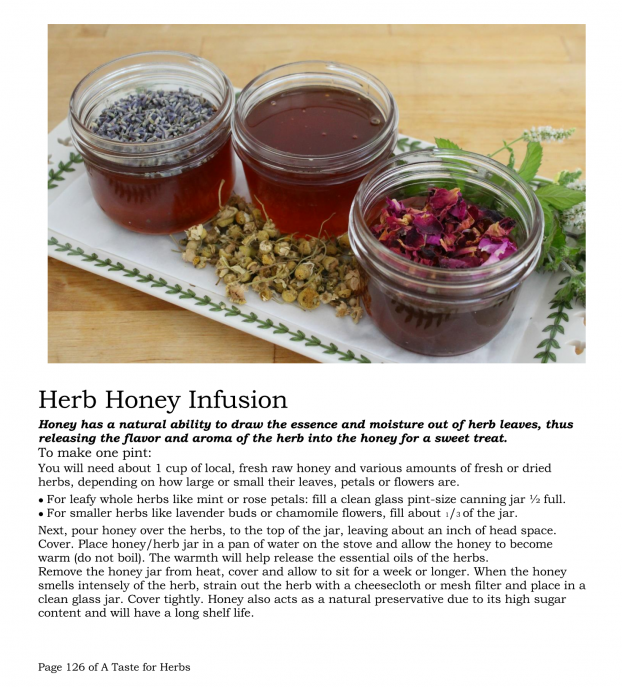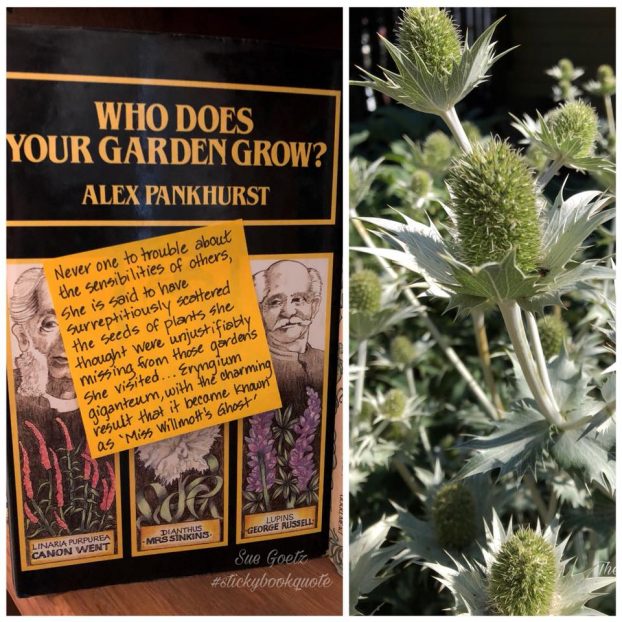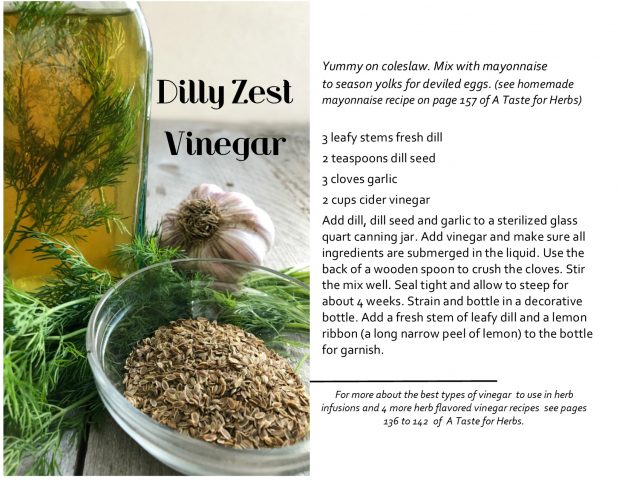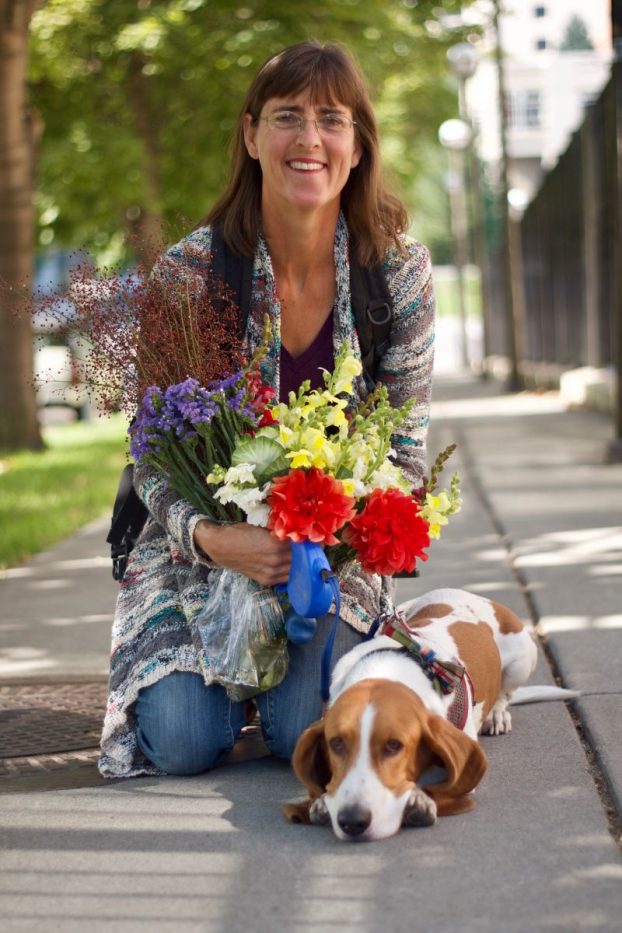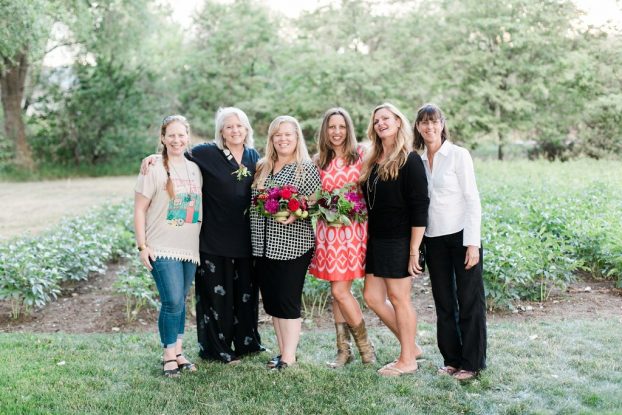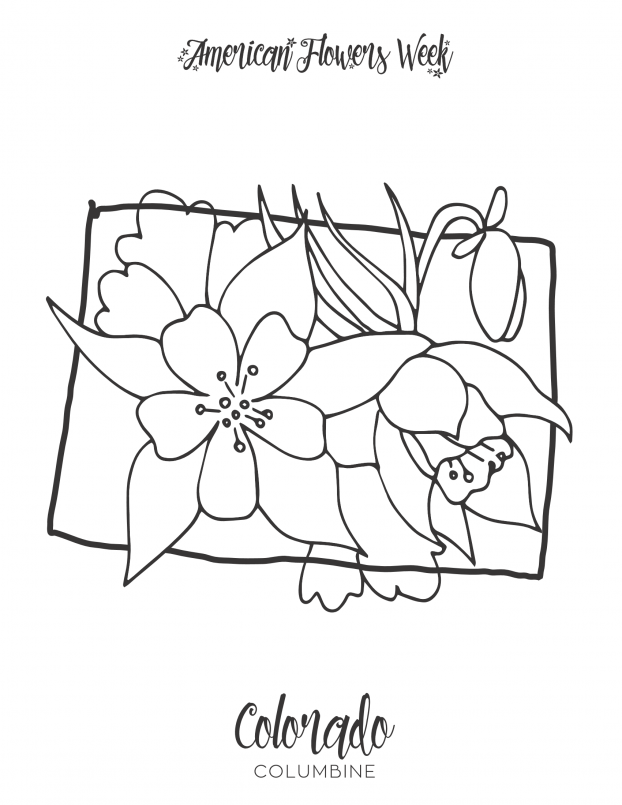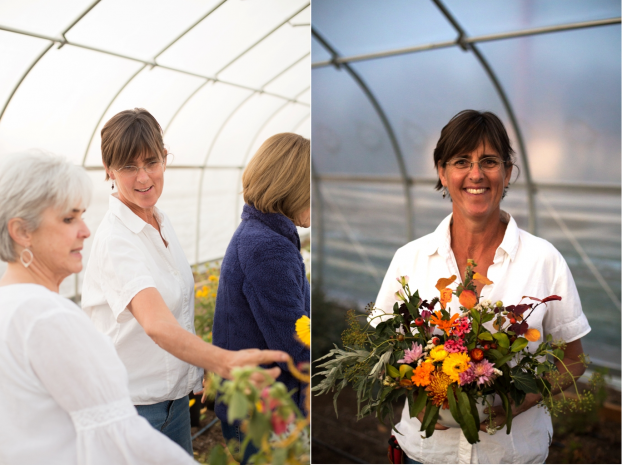Podcast: Play in new window | Download
Subscribe: Apple Podcasts | Podcast Index | RSS | More
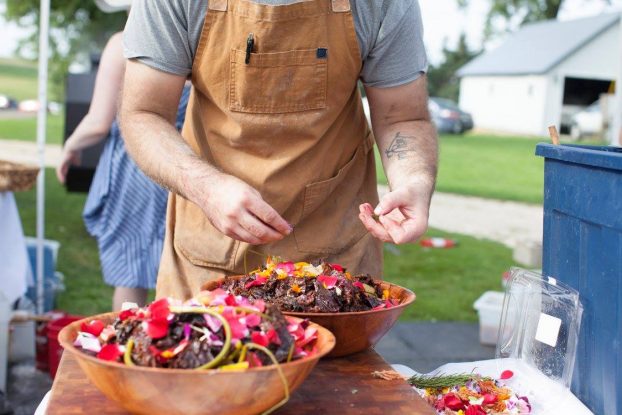
I have a delicious treat for you! The Slow Flowers Summit is just 10 weeks away, on July 1st and 2nd in St. Paul, Minnesota — so I’ll be featuring all the Summit details, people, places and flowers in the coming weeks. There’s lots in store for you at our 3rd annual Summit, dubbed a Ted Talk for Flower Lovers, and I’m so eager to share our incredible program and special events with you.
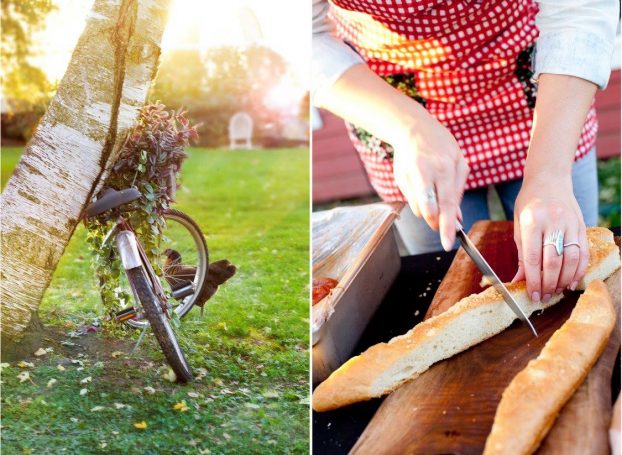
Today, we have a preview of our bonus event, Slow Flowers Dinner on the Farm, which is scheduled for Sunday, June 30th at Green Earth Growers in Prior Lake, Minnesota. BONUS: Listen to our January 16, 2019 episode with Jenny and Jolea of Green Earth Growers.
This is an incredible dining experience designed to please all of your senses. You’ll also get to meet our Summit speakers who will be there to mix and mingle with all attendees. It’s separately ticketed at a fabulous rate of $100 per person.
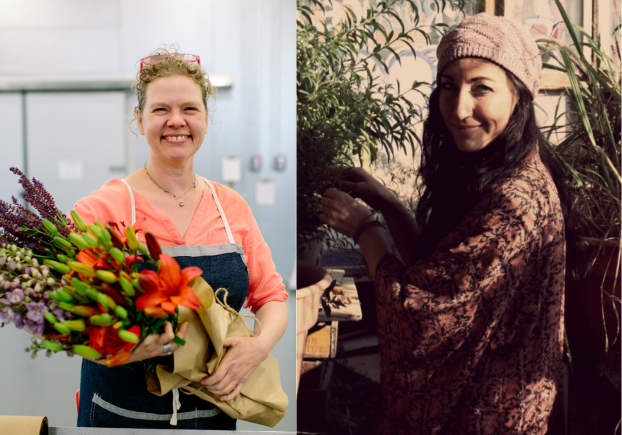
Our guests today are Monica Walch, founder and director of Dinner on the Farm, a Minnesota-based organization known for its roaming culinary events. Monica is joined by Christine Hoffman of Twin Cities Flower Exchange and Foxglove Market, co-host of the Slow Flowers Summit.
I’m so grateful that Christine introduced me to Monica in the early stages of Summit planning. Her suggestion that we include a flower farm dinner option for Summit attendees exceeded all my dreams and expectations for building community and showcasing regional agriculture.
I simply could not envision how to pull off a dinner not knowing the local foodie scene, but fortunately for me Christine and her husband Steve Sollien are a big part of Dinner on the Farm’s event production team and their relationship with Monica opened the right doors. You’ll hear more about that collaboration in our conversation today.

Here’s a bit more about Monica Walch, founder of Dinner on the Farm:
It all began on an organic dairy farm in Southeastern Minnesota, where Monica Walch grew up as one of four sisters. Spring and summer were spent picking berries, wildflowers, and names for the new kittens. Fall and winter found the girls bottle-feeding calves and building snow forts with purple-stained fingers from plucking pickled beets straight from the jar. Every evening ended with a home-cooked supper together, as a family…a celebration of the love and hard work that went into growing the ingredients for the meal.
When Monica moved away from the farm as a young adult, she chose to hold fast to her roots in the midst of the city. She spent time at markets and restaurants, helping the chefs and buyers connect to farmers in the area. At the same time, Monica was coordinating a nationwide marketing campaign to bring awareness to organic foods. It was then that she realized that connecting these two worlds could produce a whole lot of positive change in the way people think about food.
Monica believes that eating sustainably-grown, fresh food is a pleasure that deserves to be celebrated. And creating unique events designed to celebrate local food and farms has always been her work.
Dinner on the Farm produces unique events designed to celebrate local farms, with al fresco dining, farm tours, locally-brewed beverages and live music.
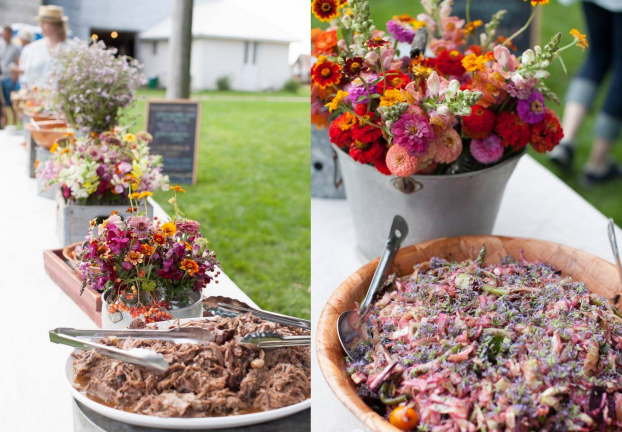
Oh, and with Christine Hoffman involved, you can be sure that local and seasonal flowers are part of the mix. As the Twin Cities first exclusively local and chemical-free florist, Christine is a slow flowers advocate striving to form a strong community of sustainable flower farmers, small business owners, and folks who care about supporting these mindful endeavors. By providing a local, sustainable option to traditional flowers, putting a premium on collaboration, and reaching out to the community, she has fostered significant change in the local floral marketplace.
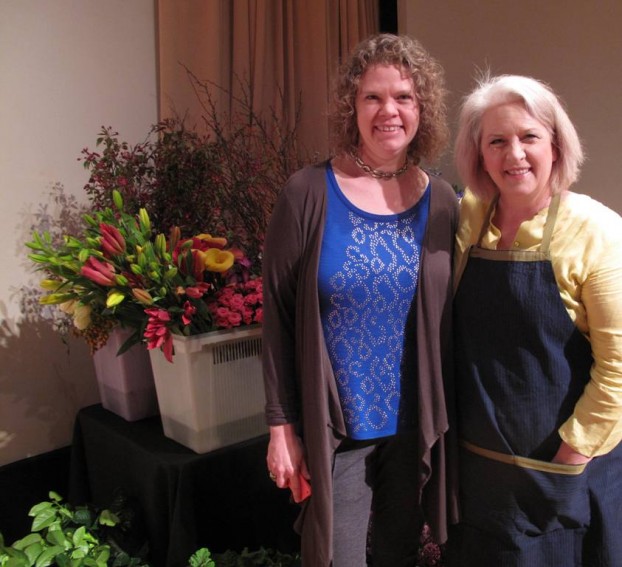
Hear our past Slow Flowers Podcast episodes featuring Christine Hoffman here:
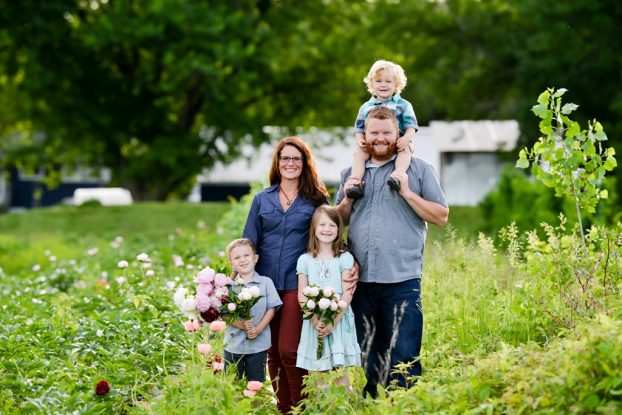
There’s more to your experience: on Sunday, June 30th, the afternoon begins with two flower farm visits for attendees as a free, self-guided visits. The first stop is at Rachael and Jon Ackerman’s Blue Sky Flower Farm. You can hear Rachael’s story on Slow Flowers Podcast Episode 378 here.
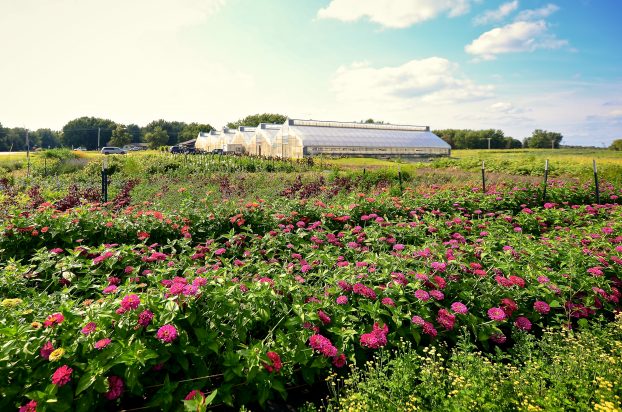
The farm tour moves next to Green Earth Growers, owned by Jenny Hotz and Jolea Gress. After the tours wind-down, dinner festivities begin, so you’ll want to grab your ticket to stay for an incredible Dinner on the Farm experience featuring flowers and produce grown on-site. All the details are available here.
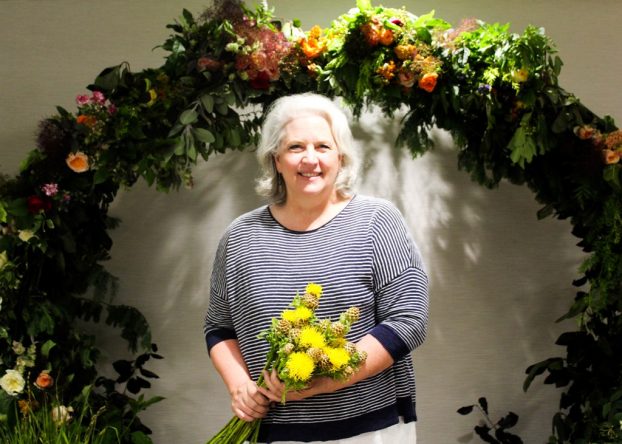
Now is the time for you to commit to joining me and the Slow Flowers Community, people who are part of the progressive floral marketplace, to connect at the Slow Flowers Summit July 1st and 2nd in St. Paul, Minnesota, as well as at the bonus Dinner on the Farm taking place Sunday, June 30th.
I also wanted to note a reminder that we forgot to mention during the interview with Monica. The Slow Flowers Dinner on the Farm is an adult-only event.
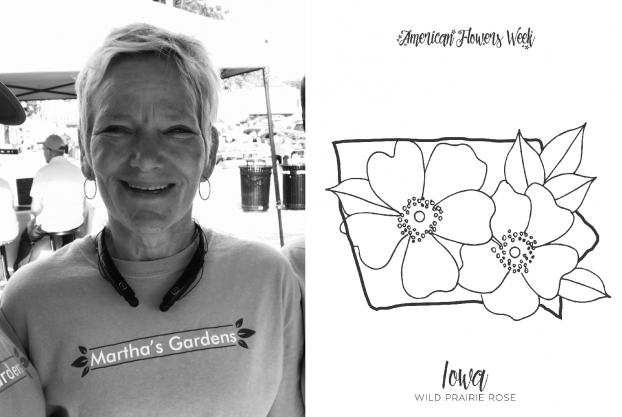
Our theme for 2019 – Fifty States of Slow Flowers – continues today, with farmer-florist Martha Pineda of Dubuque, Iowa-based Martha’s Gardens,
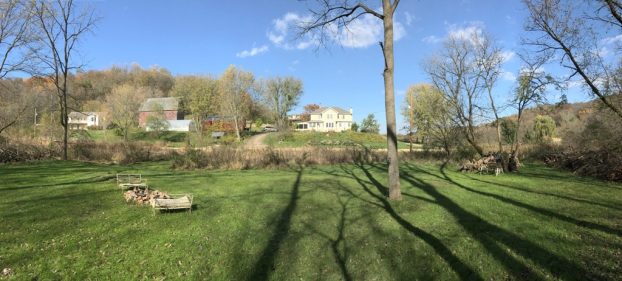
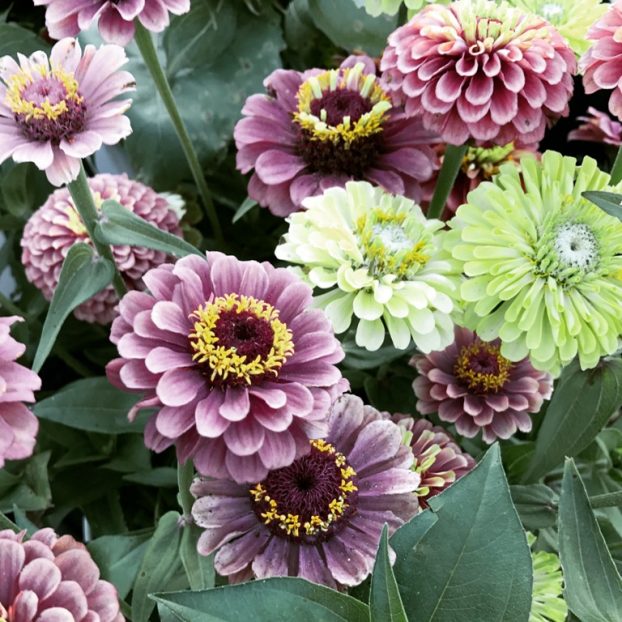
Martha writes this on her web site:
At Martha’s Gardens, we are committed to growing sustainable flowers, free of pesticides and chemicals. Within the flower community, you’ll often hear this referred to as the “slow flowers” or the “grown not flown” movement. As a small business committed to using the resources available, we subscribe to this mindset. In keeping with this, when it’s necessary to supplement our flower stock with other partner growers, we are mindful to use American growers only. We believe that reduction of the carbon footprint is the responsible choice.

Thank you so much for joining me today, and I’m so pleased to share the stories and voices of Monica, Christine and Martha — I am continually inspired be the incredible people who are making our world a better place through flowers and farming. As I seek new and inspiring voices, people with passion, heart, commitment and expertise to share with you, it’s my wish that today’s episode gave you at least one inspiring insight or tip to apply to your floral enterprise. What you gain will be multiplied as you pay it forward and help someone else.

We’ve spoken a lot about the Slow Flowers Summit, coming up soon on July 1 & 2nd in St. Paul, Minnesota. More than half of the registration slots have been grabbed, so don’t miss out on this opportunity to join with Slow Flowers thinkers and doers in person.
One of our past year’s speakers dubbed the Summit a “floral mind meld,” and I love that concept. Come and be a part of the incredible and uplifting experience! You can make your way to slowflowerssummit.com to learn all about the many opportunities to join us — from flower farm tours and dinner on a flower farm to business and branding presentations to interactive and inspiring design sessions . . . all designed to serve you! Subscribe to Summit news and updates at slowflowerssummit.com.
Truly, we have a vital and vibrant community of flower farmers and floral designers who together define the Slow Flowers Movement. As our cause gains more supporters and more passionate participants who believe in the importance of the American cut flower industry, the momentum is contagious.
I know you feel it, too. I value your support and invite you to show your thanks and with a donation to support my ongoing advocacy, education and outreach activities. You can find the donate button in the column to the right.
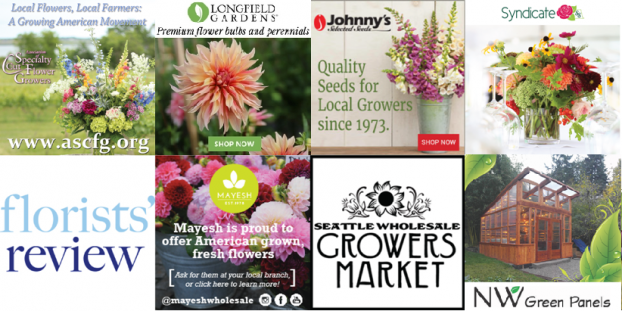
THANK YOU TO OUR SPONSORS!
Florists’ Review magazine. I’m delighted to serve as Contributing Editor for Slow Flowers Journal, found in the pages of Florists’ Review. It’s the leading trade magazine in the floral industry and the only independent periodical for the retail, wholesale and supplier market. Take advantage of the special subscription offer for members of the Slow Flowers Community.
NW Green Panels. Based in Madras, Oregon, NW Green Panels designs and constructs a wide array of wood-framed greenhouses offering versatility, style and durability. Their greenhouses are 100% Oregon-made using twin-wall polycarbonate manufactured in Wisconsin, making NW Green Panel structures a great value for your backyard. The 8×8 foot Modern Slant greenhouse has become the essential hub of my cutting garden — check out photos of my greenhouse or visit nwgreenpanels.com to see more.
The Seattle Wholesale Growers Market, a farmer-owned cooperative committed to providing the very best the Pacific Northwest has to offer in cut flowers, foliage and plants. The Growers Market’s mission is to foster a vibrant marketplace that sustains local flower farms and provides top-quality products and service to the local floral industry. Visit them at seattlewholesalegrowersmarket.com.
This week marks the 8th Anniversary of the Seattle Wholesale Growers Market — what an achievement! I’d love you to hear more about this intrepid hub connecting flower farmers with floral designers. Here is a link to my 2017 interview with Diane Szukovathy of Jello Mold Farm and Vivian Larson of Everyday Flowers, two of the founding farmers of that enterprise. Happy 8th Birthday to the growers, leadership and staff!!
Syndicate Sales, an American manufacturer of vases and accessories for the professional florist. Look for the American Flag Icon to find Syndicate’s USA-made products and join the Syndicate Stars loyalty program at syndicatesales.com.
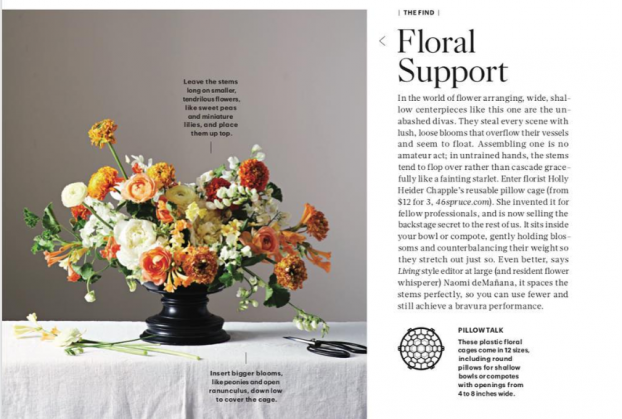
This is a big week for Syndicate’s USA-made mechanics – the pillow and egg product line affectionately called Holly x Syndicate! The reusable armatures for floral designing are featured in Martha Stewart Living’s current issue and that’s a good thing. Congratulations, Syndicate and Holly Chapple for the recognition. Here’s how you can order your own Holly Pillow – and related products.
The Slow Flowers Podcast has been downloaded more than 450,000 times by listeners like you. Thank you for listening, commenting and sharing – it means so much. Thank you all!
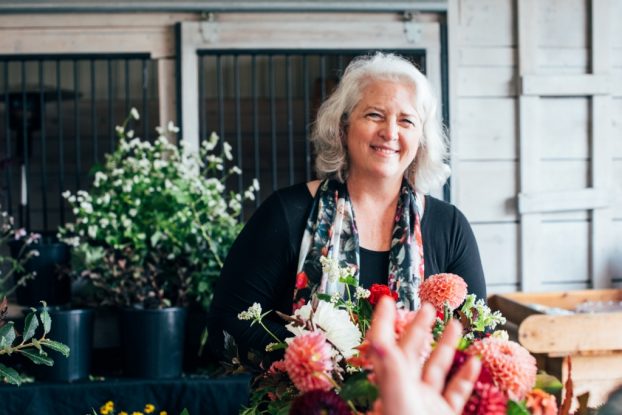
I’m Debra Prinzing, host and producer of the Slow Flowers Podcast.
Next week, you’re invited to join me in putting more American grown flowers on the table, one vase at a time. And If you like what you hear, please consider logging onto iTunes and posting a listener review.
The content and opinions expressed here are either mine alone or those of my guests alone, independent of any podcast sponsor or other person, company or organization.
The Slow Flowers Podcast is engineered and edited by Andrew Brenlan. Learn more about his work at soundbodymovement.com.
Music Credits:
The Basket; Betty Dear; Gaena; Perspiration by Blue Dot Sessionshttp://www.sessions.bluehttps://creativecommons.org/licenses/by-nc/4.0/
Lovely by Tryad http://tryad.bandcamp.com/album/instrumentals
http://creativecommons.org/licenses/by-sa/3.0/
In The Field Music from:
audionautix.com









